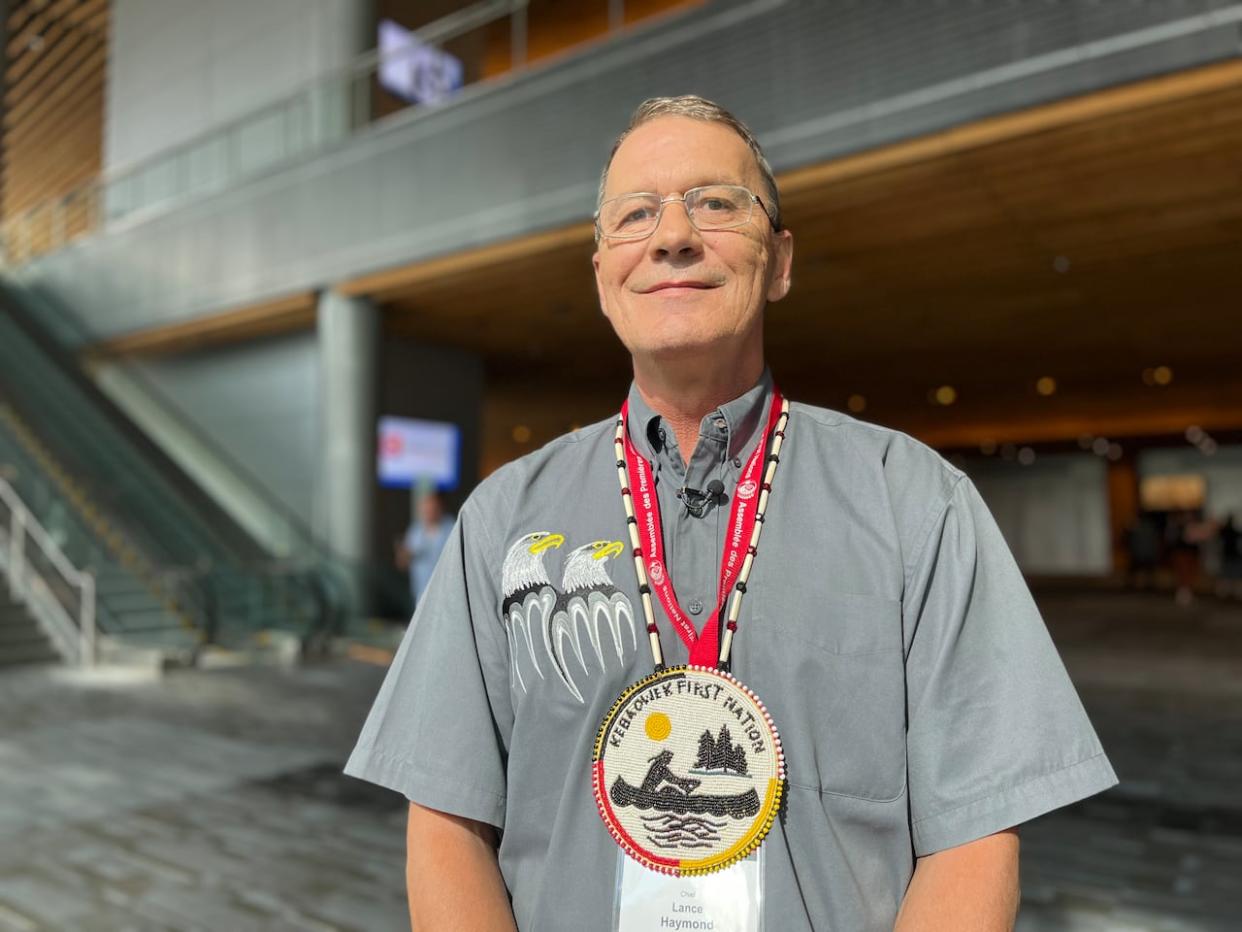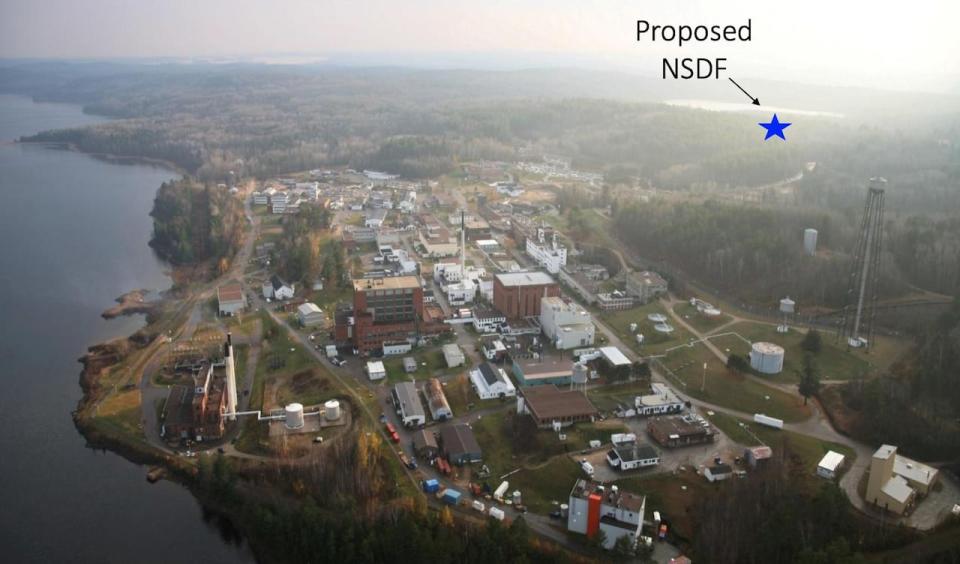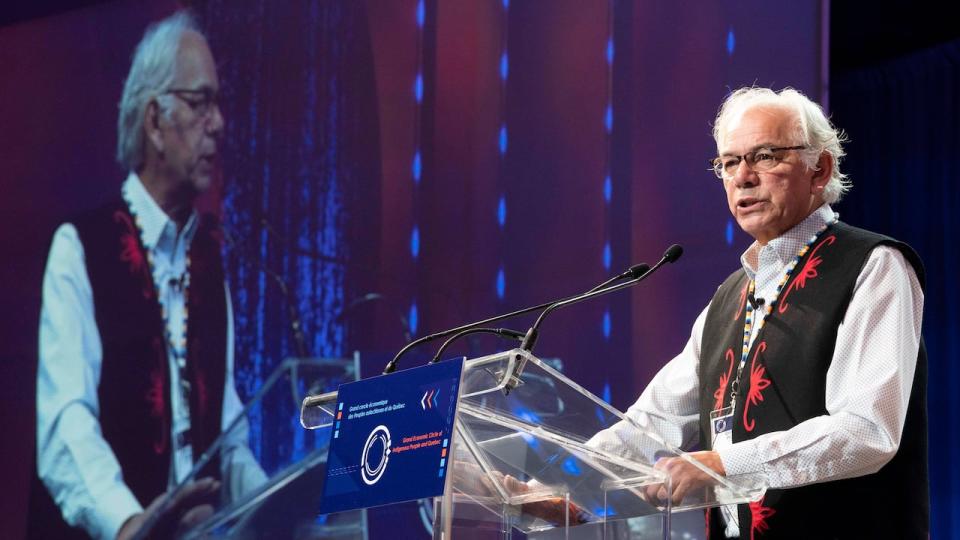Kebaowek First Nation calls on federal government to intervene in nuclear waste project

In its latest efforts to stop the construction of a radioactive waste disposal site, Kebaowek First Nation is looking to Environment and Climate Change Canada to intervene.
The Algonquin community, located in western Quebec about 300 kilometres northwest of Ottawa, wants the federal department to halt Canadian Nuclear Laboratories's (CNL) pending permit application under the Species at Risk Act.
On Jan. 8, the Canadian Nuclear Safety Commission approved CNL's proposal to build an engineered mound or "near surface disposal facility" close to the Chalk River, Ont., site about 160 kilometres northwest of Ottawa.
CNL says the mound will hold up to 1,000,000 cubic metres of low-level radioactive waste including contaminated soil and building materials from decommissioned Chalk River activities and general items like mops and protective clothing that have become contaminated.
The site is located on the unceded traditional territory of the Algonquin Anishinabe Nation. While the Algonquins of Pikwakanagan have given consent and entered into a long-term relationship agreement with CNL and site owner Atomic Energy of Canada Limited, the 10 Algonquin communities in Quebec oppose the project over environmental concerns.
"Through this entire process, we feel like we've been only given lip service," said Lance Haymond, chief of Kebaowek First Nation.
"We believe that the government should stop this project if it is serious about reconciliation and doing things differently with First Nations."
According to the Canadian Nuclear Safety Commission's record of decision, the project is "not likely to cause significant adverse environmental effect." However, prior to the construction of the facility, CNL is required to get a permit from Environment and Climate Change Canada (ECCC) under Section 73 of the Species at Risk Act (SARA). The decision stated that a representative from ECCC confirmed that the department was reviewing the permit application and had raised no concerns.

The near surface disposal facility (NSDF) proposed by Canadian Nuclear Laboratories would be on a ridge one kilometre from the Ottawa River, not far from Chalk River Laboratories in the foreground. (City of Ottawa)
Kebaowek is concerned about the site's proximity to the Ottawa River, and potential impacts on black bear dens and other species such as the eastern wolf and peregrine falcon. It made a request to ECCC and minister Steven Guilbeault that it be included in the SARA permit approval's consultation process.
"We have committed to continue every effort to stop this project," said Haymond.
"And one of them is understanding the process and intervening or asking to intervene, and participate when we can."
In an emailed statement, CNL said it has initiated the process with ECCC to obtain a permit and that there is a comprehensive discussion of the species at risk within the company's environmental impact statement.
"The assessments and plans conducted for the purpose of the CNSC licensing decision assess the impact of the proposed activities on the specified species, and the associated mitigation measures, that are part of the SARA permit process," the statement said.
AFNQL in solidarity
The Assembly of First Nations Quebec-Labrador, which represents 43 First Nations across Quebec and Labrador, is also denouncing the Canadian Nuclear Safety Commission's decision, saying it goes against the rights of First Nations and environmental protection.

Ghislain Picard, chief of the Assembly of First Nations Quebec Labrador, addresses the Grand cercle des Premiers peuples autochtone at the Sheraton Centre in Montreal on Nov. 25, 2021. (Ivanoh Demers/Radio-Canada)
Regional Chief Ghislain Picard echoed the call for government intervention, and to cancel the project.
"The Algonquins have always made it clear that they have a say and they have interest and this decision totally goes against previous positions that they have taken," said Picard.
"There's a principle of the traditional territory at play here… the impacts of this waste falling into the Ottawa River… and the impact might be bigger than just the site itself."
Environment and Climate Change Canada has yet to respond to a request for comment.


